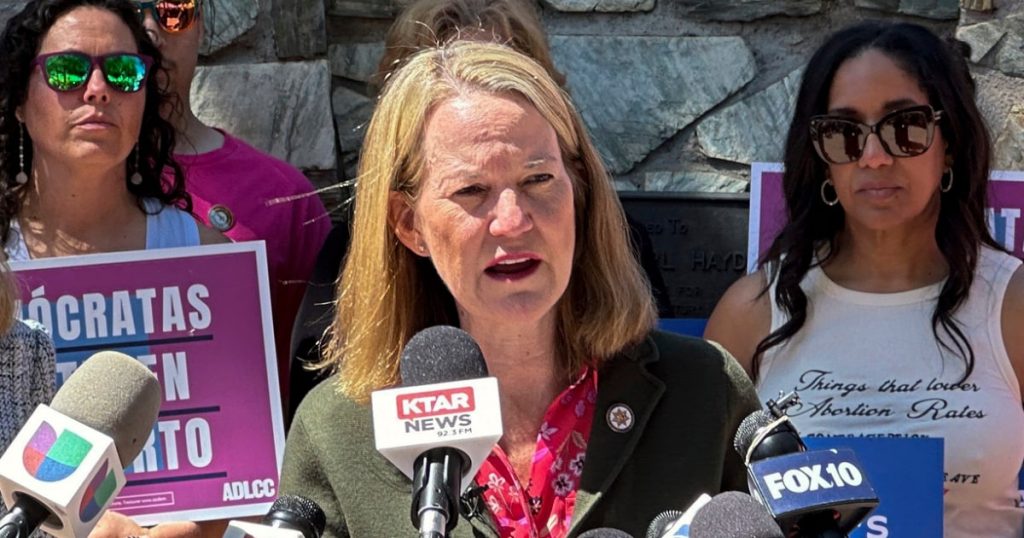Arizona Attorney General Kris Mayes is working to mitigate the impacts of a Civil War-era abortion ban that was ruled to be enforceable by the state’s Supreme Court. The 1864 law outlawed abortion from the moment of conception, with exceptions only to save the woman’s life. Mayes is exploring options such as refusing to prosecute abortion providers and patients, as well as helping license Arizona doctors in other states to ensure they can continue to provide care. The state Supreme Court’s decision on the ban has been put on hold for 14 days to consider additional constitutional challenges, giving room for reproductive rights advocates to appeal the ruling.
Shortly after the court decision, Mayes declared that as long as she is Attorney General, no woman or doctor in Arizona will be prosecuted under the draconian law. However, some abortion providers, such as Dr. Ronald Yunis, remain concerned as the law still stands and performing abortions would be illegal. Mayes plans to use the 45-day period to fight against the ban before it can be implemented. She aims to work with Arizona providers to help them obtain licenses to provide care in California temporarily, until voters can decide on a ballot measure to protect abortion rights in the state’s constitution later this year.
California Governor Gavin Newsom has pledged $200 million to ensure that California can serve as a sanctuary state for abortions for individuals from other states, including Arizonans. Newsom has expressed readiness to assist individuals in accessing reproductive health care and has not responded to requests for comment on the matter. The ruling on the abortion ban in Arizona is part of a broader trend of setbacks for abortion rights following the overturning of the landmark Roe v. Wade decision by the Supreme Court in 2022. Many states have since implemented strict restrictions on abortion, leading to legal challenges and protests from reproductive rights groups and advocates across the country.
Mayes emphasized that she was elected for this moment and is committed to fighting for freedom and the ability to control one’s own body. She reassured doctors and providers that she will do everything in her power as Attorney General to protect them from prosecution and uphold their rights to provide care. This includes exploring options to ensure providers can continue to offer services without fear of arrest. The ongoing legal battles and uncertainty surrounding abortion rights have left providers and patients in a state of flux, as they navigate the changing landscape of reproductive health care laws and regulations.
Overall, the situation in Arizona highlights the challenges faced by abortion providers and patients in the wake of restrictive laws and court rulings. Mayes and others are working to find creative solutions to protect reproductive rights and ensure access to safe and legal abortion care. The efforts to mitigate the impacts of the Civil War-era abortion ban demonstrate the ongoing need to defend and uphold reproductive rights in the face of legal challenges and threats to abortion access. The future of abortion rights in Arizona and across the country remains uncertain, as advocates and lawmakers continue to grapple with changing laws and policies affecting reproductive health care.


